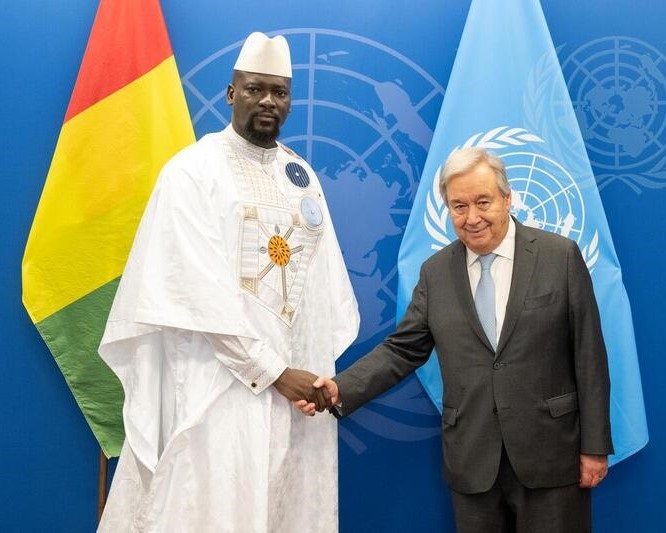
- Coups are spreading beyond the Sahel Region and heading to Central Africa.
- Guinea’s coup leader is challenging the West to re-think how it treats coup regimes – and to stay out.
- Shortcomings of democracy in society are pushing the masses to support autocracy, a recent Open Society Foundation survey found.
He overthrew Alpha Condé, 85, on 5 September that year, after taking part in the US Army’s special forces commanders’ course.
That happens to be the same training received by Colonel Assimi Goita, who is the same age, and was a leader in Mali’s coup.
(The USA is not proud of that.)
Goita removed Ibrahim Boubacar Keïta, 78, from power in August 2020, in one of Mali’s two coups in the space of nine months – slightly slower than Burkina Faso, which took just eight months between putsches.
There has also been one in Guinea and one recently in Niger.
There is something in common with these coups: anti-French sentiment that had a huge buy-in from what seemed to be large portions of the populations.
Now coups have started spreading to Central Africa, with the one in Gabon retiring Alian Bongo after a controversial election.
Analysts fear the wave could spread to the Congo Basin where there is Cameroon, Congo Brazzaville, and Equatorial Guinea, all of which have had leaders in office for a long time.
If so, coup leaders could expect sympathy, if not outright support, from Doumbouya who has some support from new data himself.
Don’t hold Africa to western norms
Last week, he addressed the UN General Assembly that saw many and deep discussions about the comeback of African coups.
Doumbouya said he wanted the West to rethink how it treated coups in Africa by starting from understanding why they were popular among civilians, rather than blaming the military.
“Everyone condemns them, sanctions them, and is disturbed by the sudden emergence of this phenomenon that we thought was over.
“To remedy the problem, we must look at the root causes. The putschist is not only the one who takes up arms to overthrow a regime.”
He argued the real people who should be blamed for violent overthrows were civilian leaders who got carried away with power and try to extend their stay in office by manipulating constitutional systems.
“The real putschists are those who cheat to manipulate the texts of the Constitution in order to stay in power eternally.”
Corruption was another push factor, Doumbouya said.
He said:
He also called for African solutions to the continent’s political challenges, rather than solutions imposed from elsewhere, including the East.
In his view, the US, China, and other foreign powers should step back while Africa tries to solve its problems.
“The African people are tired, exhausted of the categorisations with which everyone wants to box us in.
“We are neither pro- nor anti-American, neither pro- nor anti-Chinese, neither pro- nor anti-French, neither pro- nor anti-Russian, neither pro- nor anti-Turkish we are simply pro-African.
“It is time to stop lecturing us, to stop treating us with condescension, like children,” Doumbouya said.
What the people say
The Open Society Foundation recently published a barometer survey titled “Can Democracy Deliver?”
It was based on representative polls in 30 nations, eight of them in Africa, chosen to reflect geographic, economic, and political diversity across more than 5.5 billion people in those countries.
One of the notable findings was “authoritarianism appeals to some, especially the young. Just 57% of 18- to 35-year-olds think democracy is preferable to any other form of government, compared to 71% of older respondents.”
This speaks directly to countries that have had coups in Africa; the leaders are relatively young, below the age of 50 and the majority of the population is the youth.
A youth bulge in these societies has created a spirit of resentment against the typical African strongman, who has been in power for decades.
The shortcomings of democracy in society are pushing the masses to rethink, especially when they cannot have decent lives.
“Democracy and rights fall short of their potential. The ability of leaders to deliver outcomes at the national level raises questions at a time when one in two respondents [49%] is worried about putting food on the table,” the report said.
As Doumbouya argued, the survey also revealed corruption was seen as the biggest national problem.
That was why, “trust in national and local politicians was low in most of the countries polled”, the report stated.


